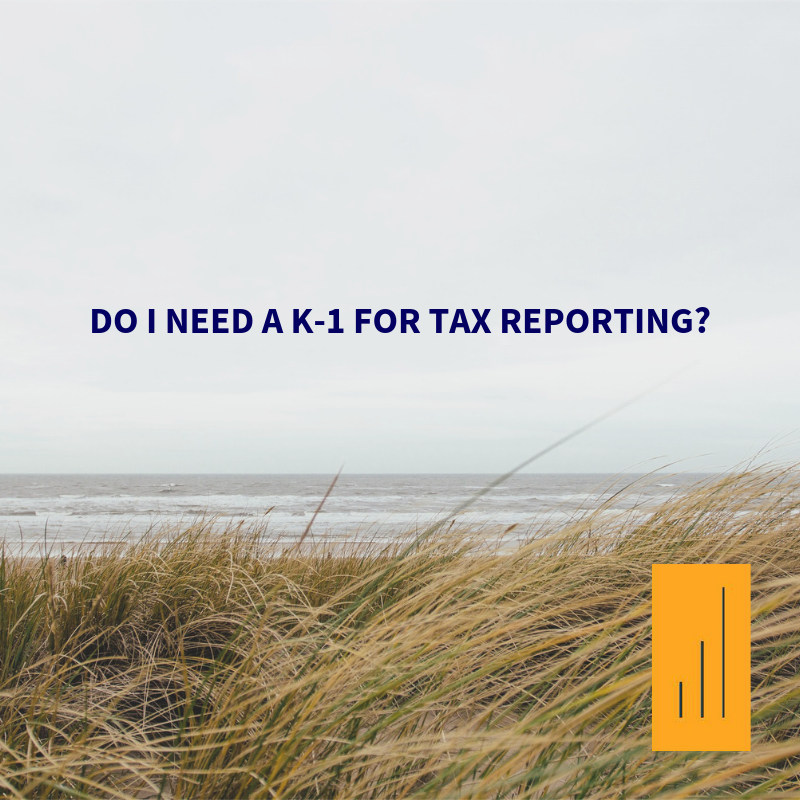If you are an investor in a company or an executive in your organization, you may wonder whether you should be receiving a K-1 for your personal tax reporting. Or maybe your accountant is asking you whether you have any K-1s, and if you’re like so many others, you have no idea.
Let’s start by explaining what a K-1 actually is. It is an IRS form that reports the partners’ share of the earnings, losses, deductions, and credits, for a partnership for the tax year. Your partner’s share of activity as reported on the K-1 is then included in your personal (or investing entity) tax return and essentially represents your portion of the earnings and losses in the company for the year. The company itself will also file a tax return but the company’s return will be for informational purposes and the K-1s will be filed along with the return, reflecting the actual tax activity that is being “passed through” to the partners.
So, when you hear that a certain type of corporate structure is a psss-through entity, that’s what they mean – that the earnings and losses are being “passed through” to the partners and will be reported on the partners’ respective tax returns instead of the company’s own tax return.
Now just because we say “partner,” that many not be what you call yourself with respect to the company. However, if the company is an LLC, taxed as a partnership or a Sub-S Corporation, the company will be taxed as a pass-through entity and the owners will be considered partners with respect to tax reporting.
TruSpan Financial has some clients that are LLCs for corporate purposes, but are the only owner or only partner. In that case, you will not have a K-1. If you are the only owner in an LLC, the earnings and losses of the company will be reported on your Schedule C as part of your individual tax return (unless you are a Sub-S Corp). This is confusing if you hear people talk about K-1s and LLCs in the same discussion. But this is the way it works. If you aren’t sure if you should be receiving a K-1, you can ask the company and generally they are distributed during March, though not necessarily if the company is filing for an extension. When you are making an investment in a company, you should take note if they are a “Corporation” or if your investment vehicle is a Convertible Note, you will not receive a K-1. If you are investing or are an executive in an LLC or a Sub-S Corp and becoming a party to the Partnership Agreement, you will receive a K-1 as a partner in the company. There are all sorts of nuances that may exist in your ownership rights or in the partnership itself, so best to ask if you aren’t sure. But hope this sets you on a path to greater knowledge.
If you ever need help, just let us know or visit us at truspanfinancial.com. TruSpan Financial provides financial and accounting services to select early-stage and scaling companies, while giving peace-of-mind to the management team and investors who support them.

